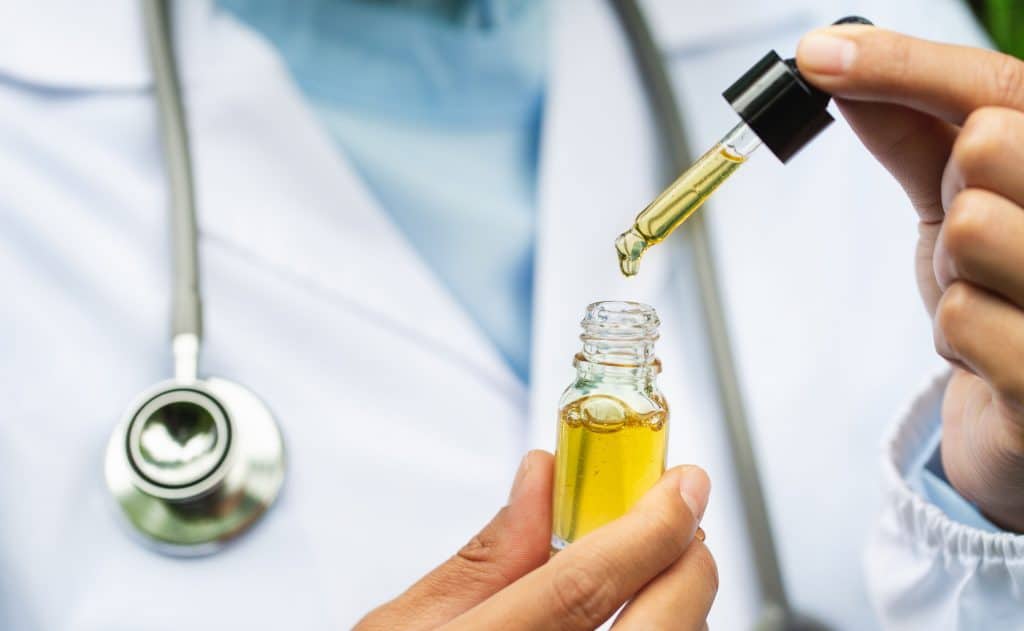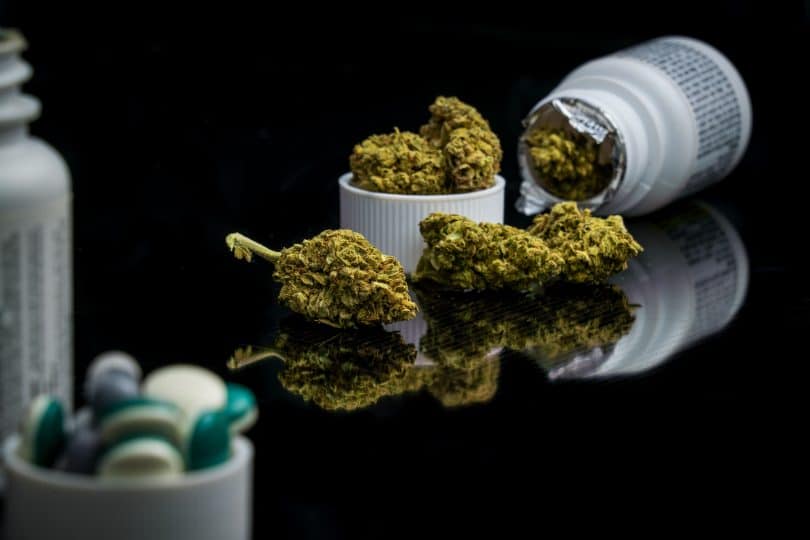The opioid problem isn’t getting any smaller, and thus far, no tactics employed, are helping things out. If a new Texas bill goes through, it will officially make cannabis an opioid alternative in the state; giving a much needed replacement to these death-causing drugs. Will it pass, and what else would this new bill change?
Texas and cannabis
Texas is not historically one of the more lenient states when it comes to cannabis; although as a southern state, its made great leaps and bounds in the last few years. Prior to 1973, Texas had the most strict cannabis policy in the US, with all possession garnering a felony charge. In fact, such possession came with two years to life in prison. Luckily, things have loosened up on several fronts, starting with the passage of House Bill 447 in 1973, which changed the penalty scheme for cannabis crimes.
Even so, recreational cannabis is still illegal in the state, and possession of up to two ounces counts as a class B misdemeanor. It comes with a penalty of up to 180 days prison time, and up to $2000 in fines. This applies to state law, though several individual locations have enacted less severe punishment measures.
In 2015 Texas passed medical legislation that allowed the use of cannabis oil with no more than .5% THC, (since updated to 1%). This is applicable with a doctor’s prescription; and happened through Senate Bill 339 aka the Texas Compassionate Use Act. At the time of passage, cannabis oil was specifically meant for epilepsy patients. Since that time, Texas passed a range of bills to cover more illnesses, and loosen cannabis restrictions in general.
Welcome everyone. Please subscribe to the Cannadelics Weekly Newsletter for direct updates, and for a range of awesome promotions on weed buds, vapes & smoking equipment, edibles, cannabinoids (including delta-8), amanita mushroom extracts, and too much more to name. Let’s all get stoned…responsibly!
Despite making progress on some fronts, like medical usage, Texas has had a back and forth pattern of progress. For example, as late as 2020, the state banned smokable hemp. In fact, as per Texas drug policy, “Smoke a joint, lose your license” applied, whereby part of the punishment for a drug infraction, was temporary loss of a drivers license. This was officially overturned in 2021. In term of smokable hemp, though the ban was overturned in 2021, in 2022, the State’s Supreme Court reinstated the ban on manufacture and processing of smokable hemp. This still stands.
Interestingly, in 2015, a Texas lawmaker introduced a recreational bill, under a religious pretense. Said Representative David Simpson who created the bill, “I don’t believe that when God made marijuana, he made a mistake that government needs to fix.” The bill, however, never cleared either side of the State’s Congress, and no subsequent effort of this nature was made.
New Texas bill to expand medical industry
Texas passed a couple updates since its original medical passage, in 2019 and 2021. And now, once again, legislation is on the table that would expand it out even further, and which introduces the ability to use cannabis as an opioid alternative. Originally filed at the end of January 2023 by republican Rep. Stephanie Klick, HB 1805 was officially passed by the Texas House of Representatives on April 12th, 2023. The vote was 127-19.
What does this bill do? It’s a cannabis bill meant to expand medical services. This time around, a couple things would come out of it. For one, it would replace the 1% THC cap with a 10 milligram volumetric dose. As per the wording of the bill, it redefines the term ‘low-THC cannabis’ to mean “the plant Cannabis sativa L., and any part of that plant or any compound, manufacture, salt, derivative, mixture, preparation, resin, or oil of that plant that contains not more than 10 milligrams of tetrahydrocannabinols in each dosage unit.” Thus, it removes “one percent by weight”, replacing it with the 10mg max instead.
The other big thing it would do, is allow cannabis to be prescribed as an alternative to opioid medications for patients with chronic pain issues. As per the wording of the bill, the inclusion would be made for “a condition that causes chronic pain, for which a physician would otherwise prescribe an opioid.” Right now, qualifying conditions are epilepsy, seizure disorders, multiple sclerosis, spasticity, amyotrophic lateral sclerosis, autism, cancer, neurodegenerative diseases (incurable), PTSD, and medical conditions approved for research.
Another addition aside from cannabis as an opioid alternative, is that the Department of State Health Services could designate any issue seen as a debilitating medical condition, for cannabis treatment. This would make it so that more conditions could be treated by cannabis, regardless of whether they’re officially stated in the law.

The bill isn’t out of the woods yet, and passed over to the Texas Senate after approval by the House. Should it pass through the Senate, its expected to be enacted in September, 2023. But its already known that making it through the Senate, will be much harder than making it through the House. The Senate is presided over by Lt. Gov. Dan Patrick, a staunch anti-legalization supporter.
An example of this disconnect between government entities related to cannabis was seen prominently in 2019, when the House passed a cannabis decriminalization measure, which stalled out in the Senate. Several other legislative measures concerning cannabis have gone the same way since that time.
Texas and opioids
Perhaps what will ultimately give this bill a good push forward, is that its specifically related to opioids. Opioids have become an incredible problem throughout the US, and beyond. 2021 saw close to 100,000 opioid overdose deaths in just the US, with nothing done on a substantial level to get rid of the problem.
In fact, despite the deaths, and despite every state having some kind of lawsuit against big pharma giants and retailers, opioids are still allowed through government regulation, and doctor’s are still most certainly allowed to prescribe them. While alternatives like ketamine exist (which would realistically prove more useful than cannabis), this is literally pushed down so far, its not a part of the conversation.
What’s the deal in Texas specifically with opioids? According to the Texas Workforce Commission, there were 2,506 opioid-related deaths in 2021, which was an 80% increase from 2020. In 2020, 92% of opioid deaths were from synthetic opioids, in the age range of 0-17. In 2021, the average monthly death rate was 209, up from 114 in 2019. And since 2017, 52% of all unintended deaths from overdose, included use of an opioid.
When comparing Texas to the rest of the US, in 2020, the Texas rate of opioid use was 7.2%, while in America overall, the rate was 5.6%. The top five counties in the state hit hardest by opioids in 2020, were: Harris, Dallas, Tarrant, Bexar, and Travis; with deaths of 489, 217, 165, 125, and 109, respectively. It’s fair to say that Texas has a bit of a problem with opioids.

Enough to be a part of lawsuits against 11 different entities. These include four with manufacturing companies: Johnson & Johnson, Endo, Teva, and Allergan. It’s a part of a separate suit with the following distributors: AmerisourceBergen, Cardinal Health, and McKesson. One against retailers: CVS, Walgreens, and Walmart. And one with manufacturer and distributor Mallinckrodt, which is now bankrupt. It’s expected that all told (Texas and beyond), these companies are paying in the neighborhood of $50 million in these, and other, suits; and that’s not accounting for future lawsuits.
There’s no saying if this medical expansion bill will pass. However, that it attempts to facilitate some kind of help to opioid users in the way of using cannabis as an alternative for opioid medicines; indicates it might get more traction than other cannabis-related bills. In a state with growing opioid damage, even anti-cannabis holdouts, will eventually have to cave to voter will for help and change.
Conclusion
Cannabis might not be the overall best opioid alternative, but its certainly something at a time when something is needed. What might be a better showing of support for the people, however, is laws that eliminate the legal ability to prescribe and sell these medications. And if you’re thinking we could never as a population handle life without them; its best to remember that not only are there non-addictive alternatives like ketamine, but that we as a species survived thousands of years without synthetic opioids. Just a thought.
Hello all! Thank for being with us at Cannadelics.com; where we work daily to bring you the very best in reporting for the cannabis and hallucinogen spaces. Head our way regularly to keep up with the Joneses; and sign up to our Cannadelics Weekly Newsletter, so you’re always aware of what’s going on.









